Semantic Interoperability for Data Spaces
Semantic interoperability is revolutionising the way data is shared and utilised across industrial ecosystems, particularly within Data Spaces for circular manufacturing. In the Circular TwAIn project, semantic interoperability has been a cornerstone for creating transparent and efficient solutions for data sharing.
At the heart of this contribution is the Circular TwAIn Ontology Library, a structured knowledge repository designed to enable unambiguous data representation and sharing. By adopting a hybrid approach that combines domain-specific information models like EMMO[1], SARREF[2], Battery Pass[3] and AAS-based standards, the library ensures compatibility with existing frameworks and flexibility for future extensions. These ontologies are the backbone for Digital Product Passports (DPPs), Digital Twins and Data Spaces, bridging technical and semantic gaps to represent materials, products, and processes effectively.
To facilitate access and integration, the API for the Ontology Library was developed. This tool enables efficient querying and data enrichment, reducing manual effort in identifying relevant information models and concepts within the ontologies. In the Battery Pilot, the Ontology Library incorporates established battery-specific ontologies from Battery Pass to manage data related to material composition, lifecycle metrics, and recycling guidelines. Similarly, for the WEEE Pilot, models like the Digital Nameplate[4] are adopted to standardise metadata for electronic components, ensuring data interoperability. Lastly, in the Petrochemical Pilot, elements of the Carbon Footprint[5] and Time Series Data[6] models can be utilised to document material flows, sensor observations, and monitor environmental impact.
Why is this important?
Semantic interoperability ensures data flow unambiguously and meaningfully between stakeholders, from manufacturers to recyclers. This transparency fosters better decision-making, supports regulatory compliance, and paves the way for new value-added services. With tools like the Circular TwAIn Ontology Library and its APIs, industries can harness the power of Data Spaces to achieve sustainability goals and optimise their operations.
The table below summarises the artifacts developed within the Circular TwAIn project to enhance semantic interoperability.
Artifacts
Circular TwAIn Ontology Library
GitHub/Circular-TwAIn/CircularTwAIn-Ontology-Library | Online deployment (visualisation): https://ctonto-webvowl.sct.sintef.no/#ct
API
GitHub/Circular-TwAIn/CTOntoAPI | Online deployment: https://ctontoapi.sct.sintef.no/docs
Frontend
GitHub/Circular-TwAIn/CTOntoAPI | Online deployment: https://ctonto.sct.sintef.no/
References
[1] https://emmo-repo.github.io/
[2] https://saref.etsi.org/saref4inma/v1.1.2/
[3] https://www.globalbattery.org/battery-passport/
[4] https://github.com/admin-shell-io/submodel-templates/tree/main/published/Digital%20nameplate
[5] https://github.com/admin-shell-io/submodel-templates/tree/main/published/Carbon%20Footprint/0/9
[6] https://github.com/admin-shell-io/submodel-templates/tree/main/published/Time%20Series%20Data/1/1
Written by: An Lam, SINTEF


